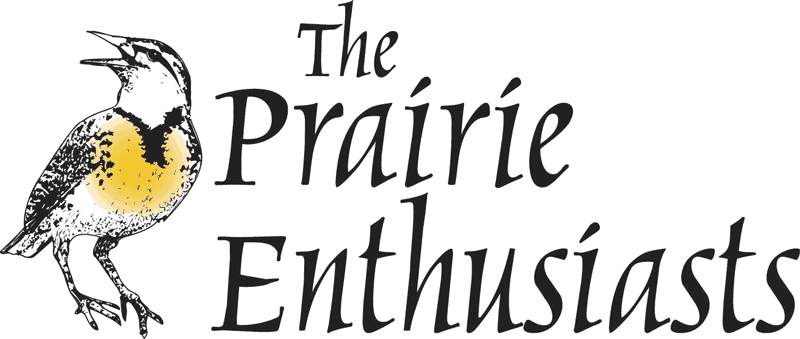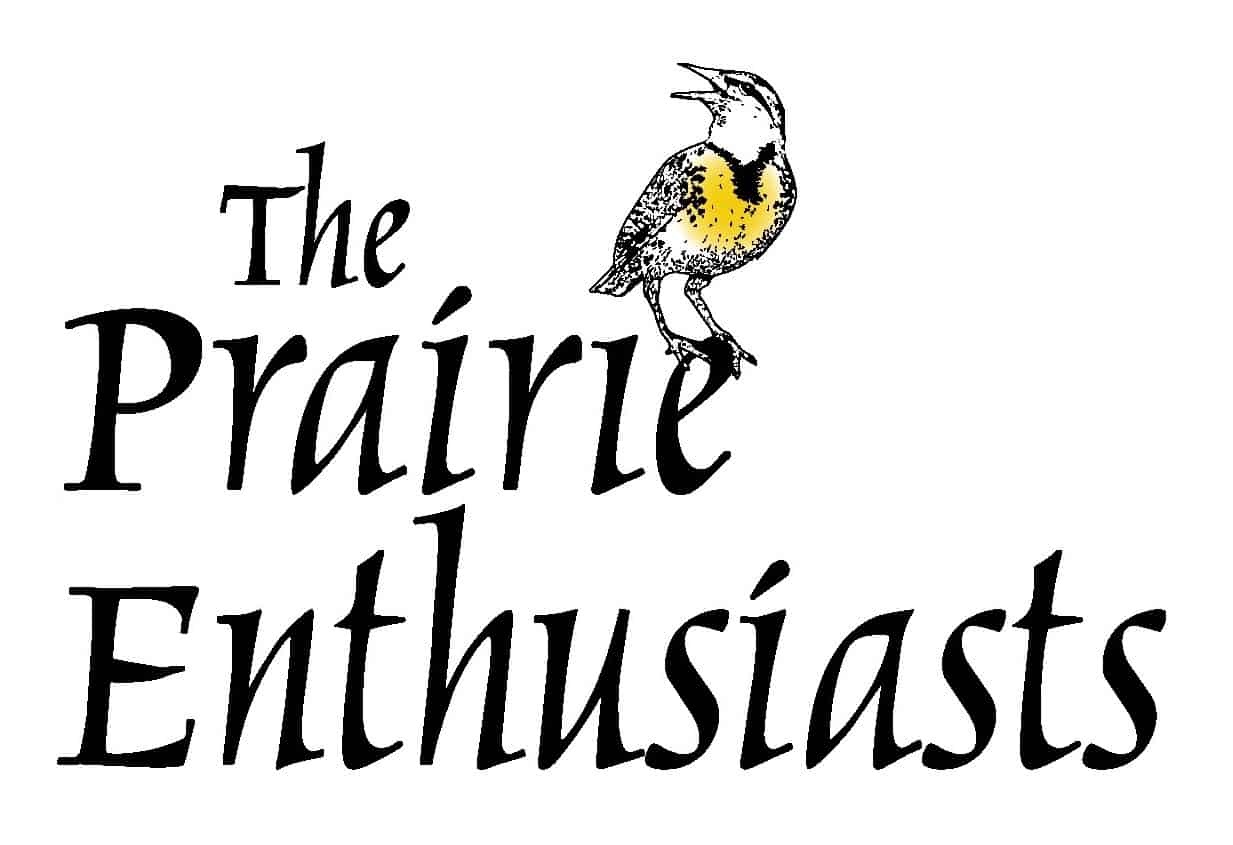Are you, or do you know someone who is interested in restoring or managing native prairie and savanna communities on private land? Would you like to hear the bumblebees busily spreading pollen from flower to flower and see more butterflies dancing among the grasses?

Coulee Region Chapter members John and Rita Hoffmann at their property in Viola, WI with Dan Carter in May. Photo by Scott Fulton
As most of us are well aware, the biggest threat to the prairie plants, pollinators and other animals is a loss or degradation of their habitat. With more than 96% of Illinois, 82% of Wisconsin, and 77% of Minnesota’s landscape under private ownership, landowners play a key role in helping conserve the diversity and beauty of natural prairie and savanna communities.
Although some of our our volunteer chapters focus primarily or in part on supporting private landowners with restoration, management, and education efforts, much of TPE’s work over the years has been focused on preserves we own or public lands that we support. Several years ago, we identified a major need to provide better services to private landowners, who are frequently so busy on their own properties that they are not able to do much volunteer work with the chapters. In 2018 we surveyed our landowner members to better understand their needs and began to look for ways we could better serve them.
Good news! This year TPE received a 3-year grant from the National Fish and Wildlife Foundation (NFWF) to provide educational outreach and direct technical assistance for private landowners who want to restore and manage habitat for pollinators (with a special focus on monarch and Karner blue butterflies and the rusty patched bumblebee). The goal is to work with landowners throughout TPE’s service area to increase the overall acreage and quality of native prairie and oak savanna pollinator habitat. The grant dollars are to be used specifically to fund two new TPE staff positions to work in collaboration with TPE’s local chapters as well as several other conservation organizations, including the Valley Stewardship Network and the Southwest Wisconsin Grassland Network. NFWF is particularly interested in supporting working landowners, so much of our efforts will be focused on reaching out to farmers and ranchers in our region, a new audience for TPE.

Key pollinators for TPE NFWF grant – monarch and Karner blue butterflies and rusty patched bumblebee. Photos by Gary Shackelford, Shelley Hamel, and Jeb Barzen
Diane Hills and Dan Carter have recently joined TPE’s staff to implement the NFWF grant (for more about them, see the staff introduction article in this edition). Half of Diane’s role as Outreach and Development Coordinator will be to work on engaging and educating landowners about the ecology and natural history of prairies and savannas along with best practices for restoration and management. TPE’s chapters already provide an excellent local, peer-based foundation for these activities, and Diane will be actively building upon and supporting their efforts. Stay tuned for future program developments!
Dan Carter is the new Landowner Services Coordinator funded full time by the grant. He is now available to schedule site visits to assess and discuss the potential for prairie/savanna restoration and reconstruction projects on private property. Depending on the project’s potential within the scope of the grant and the landowner’s interests, Dan can help landowners develop a management plan and connect them with possible funding sources and quality resources (such as management contractors and quality seed suppliers), as well as provide information about potential land protection options. Dan will be working in close contact with the local chapters to connect landowners new to TPE with our existing community, and to provide the best locally based advice.
Now that the field season is in full swing, Dan already has a full dance card of landowner visits under way. If you (or someone you know) own private land, you can reach Dan at landowners@theprairieenthusiasts.org or 319-321-6513 to ask questions, discuss your property’s potential and/ or set up a site visit. As a landowner, you can make a difference!

